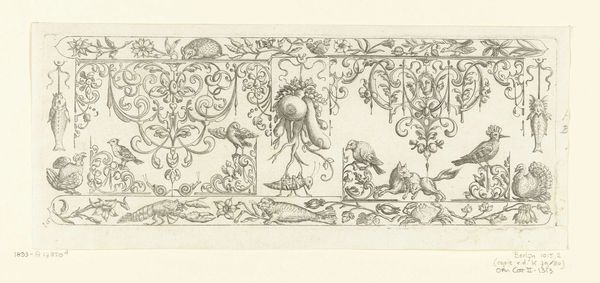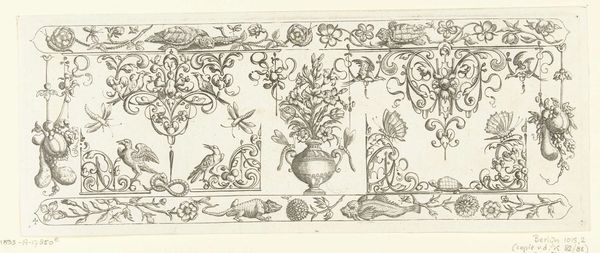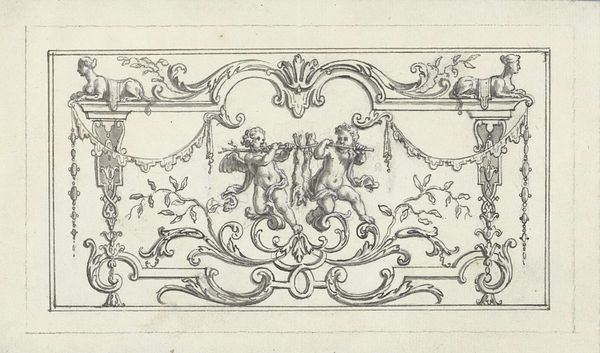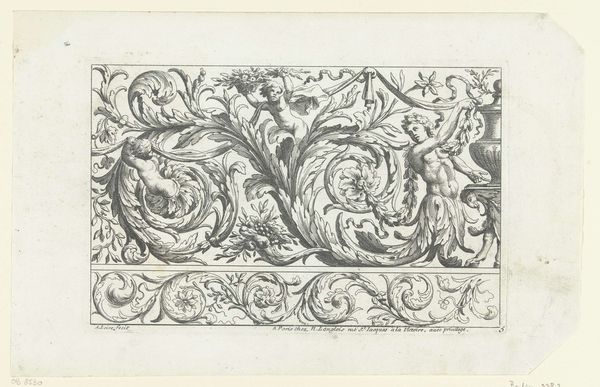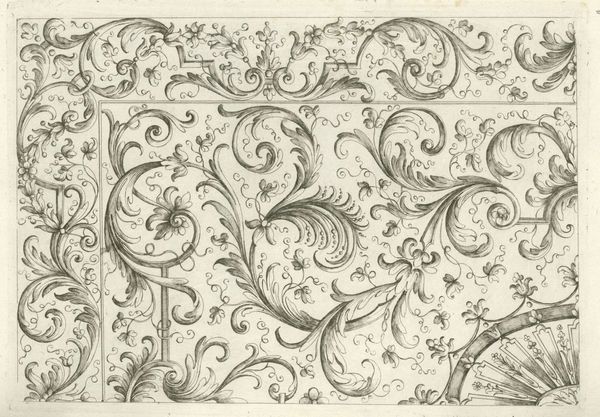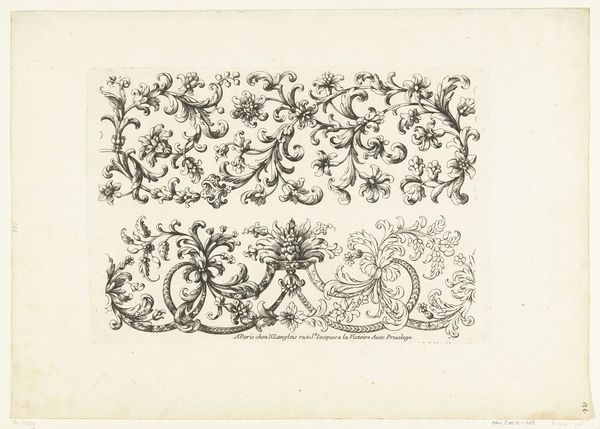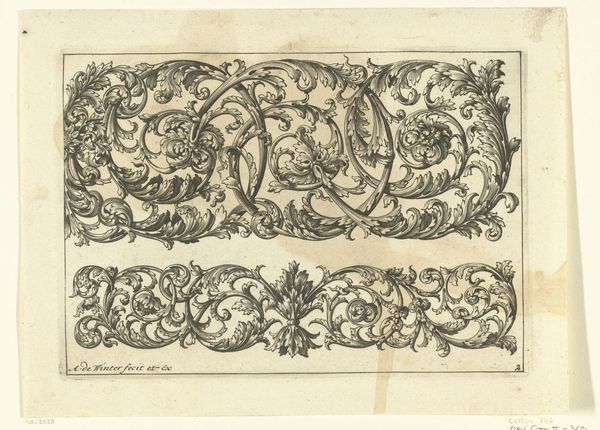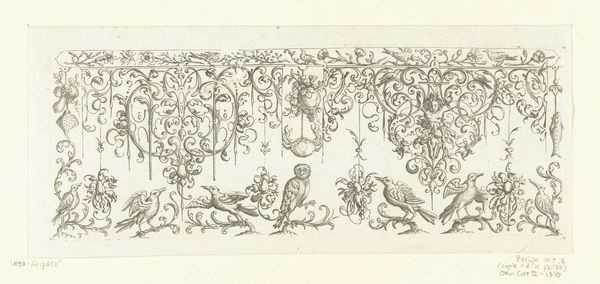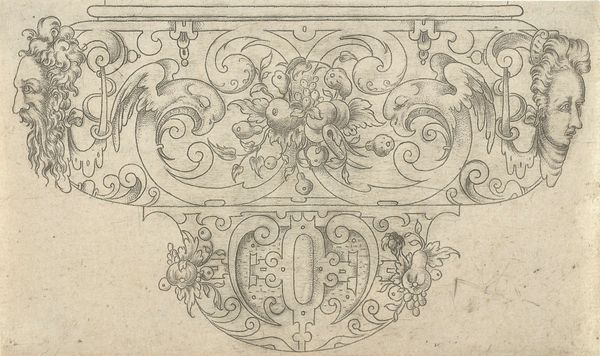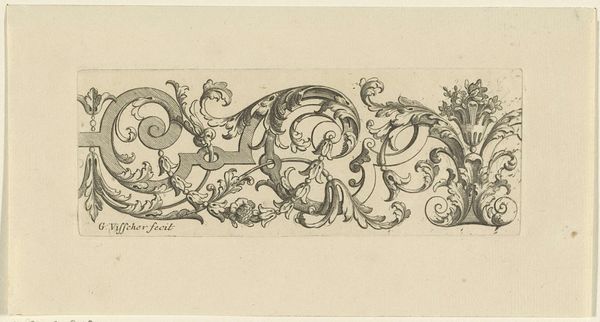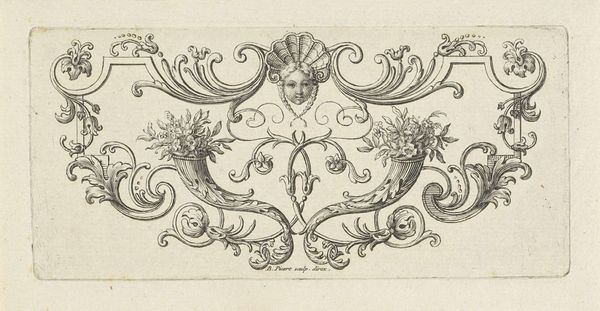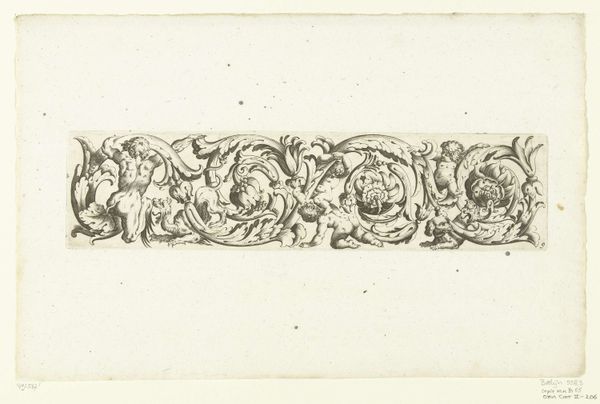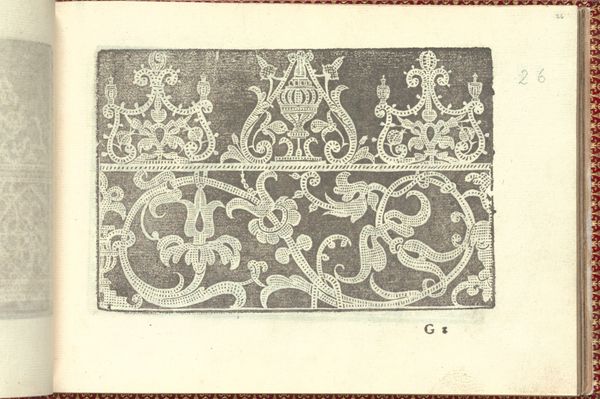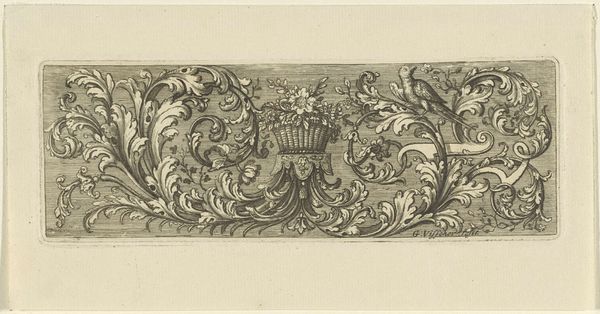
drawing, paper, ink, engraving
#
drawing
#
comic strip sketch
#
pen drawing
#
pen illustration
#
pen sketch
#
old engraving style
#
paper
#
ink line art
#
linework heavy
#
ink
#
pen-ink sketch
#
pen work
#
northern-renaissance
#
decorative-art
#
engraving
#
doodle art
Dimensions: height 78 mm, width 204 mm
Copyright: Rijks Museum: Open Domain
Editor: So, here we have "Randdecoratie met bovenaan twee krekels," a drawing by Henri Le Roy, dating from after 1611. It’s done in ink on paper. It feels very ornate, almost like a border you might find in an old book. What’s your take on this piece? Curator: It's interesting you say that. Think of the socio-political context of the Northern Renaissance. Borders, especially decorative ones like this, weren't just aesthetic; they were signifiers of status, education, and access to knowledge. Who controlled the printing presses and the creation of these ornate books? What narratives were they choosing to frame? Editor: That’s a good point. The detail is incredible; you could get lost examining all the little creatures and floral designs. Curator: Exactly! And what do these creatures and floral designs *mean* in their historical moment? Krekels or crickets, for example, could represent music, but also be symbols of transience and mortality, a “memento mori” popular during this era of plagues and religious upheaval. Do you see any other potentially symbolic elements? Editor: I see the skull. Is it another memento mori? It's juxtaposed with so much life – the birds and flowers seem to suggest abundance. Is it a way of balancing life and death? Curator: Precisely! Think about the societal structures influencing artistic choices. Who was commissioning works like these, and what anxieties or ideals were they trying to project? This juxtaposition, this dance between abundance and decay, speaks volumes about their worldview, and their power. How does understanding this context change your initial reading of the artwork? Editor: It makes me think beyond just the beauty of the design. It makes me wonder about the intended audience and the message they were meant to receive. The "frame" is part of the artwork. I can now think about the messages layered inside that frame! Curator: Indeed!
Comments
No comments
Be the first to comment and join the conversation on the ultimate creative platform.
